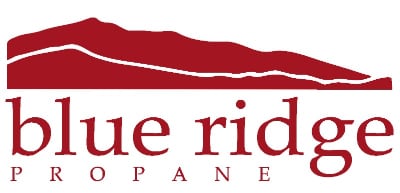Flood Waters - Propane Safety Tips
With the potential of heavy rains bringing dangerous flooding to parts of Avery County and surrounding areas during the summer and fall season, it’s critically important to take actions to help keep your family and home safe and secure. Residents with propane on their property will be well served by taking a few specific precautions. So, whether you’re preparing for floodwaters to reach your property or already waiting for waters to recede, the following safety measures can be implemented to help protect your family and your propane home before, during, and after the flood.
Create an emergency preparedness plan and review it with everyone in your family. In addition to listing contact information for emergency services and your propane supplier, make sure to include instructions on how to turn off electricity and water, and how to shut off the outdoor propane supply and indoor propane appliances. If you have time, consider installing a carbon monoxide (CO) detector on every level of your home, as well as installing one or more propane gas detectors. Make sure you and your family know what propane smells like. Propane has a strong, unpleasant smell like rotten eggs, a skunk’s spray, or a dead animal. Blue Ridge Propane supplies a brochure to all new customers initially, and all customers annually that has a scratch and sniff button that demonstrates this smell.
In flood zone areas, make sure your above-ground and underground propane tanks are anchored securely. This will help prevent tanks from moving from their secured placement on the property if the water level rises.
In the event that a flood threatens your safety, shut off the gas. During a major flood, you may have to decide whether or not is necessary to evacuate. Listen to local authorities for instructions on the appropriate course of action to take. Whether it is determined that you should stay or leave, shut off your gas. First, close the valve to the right (clockwise) to turn off the main gas supply on your propane tank if it is safe to do so. Then, turn off the gas supply valves located near individual indoor appliances. Consult your propane supplier to make sure you know where the actual valves are located and how to shut them off. If you do evacuate, use caution when returning to your home, farm, or business, and leave the area immediately if you have any doubts about your safety. If it is dark, use flashlights, not candles. Check for downed power lines and shifted or damaged gas lines or tanks. Immediately call your local utility company or propane supplier if any of these hazards exist. If you find a propane tank on your property that is not yours, or if your propane tank has become dislodged or is missing, contact Blue Ridge Propane or local fire department immediately.
If your home or business is without heat or power, never use outdoor propane appliances indoors or in enclosed areas. This includes outdoor portable heaters, barbecue grills, and portable generators. It’s also important that you never use a gas oven or range-top burner to provide space heating, and never store or place a propane cylinder indoors or in an enclosed area.
Schedule a time for a qualified service technician to perform a complete inspection of your propane system. This will ensure your safety if you suspect any of your propane appliances, equipment, or vehicles have been under water or they have been damaged (or you have turned off your gas supply ahead of a flood). Do not use or operate appliances, equipment, or vehicles, or turn on the gas supply, until your system has been inspected by a qualified service technician. Do not ever turn on a light switch, use any power source, or inspect your household appliances while standing in water. Do not under any circumstances try to modify or repair valves, regulators, or other appliance parts.
Exercise sound judgment. Stay calm; we’ll get through this as a community together. Use radio, television, and telephones to stay informed and connected. If any questions arise, contact Blue Ridge Propane or emergency services. These safety tips can go a long way to maintaining a level of safety while the any area waits for the flood waters to recede. For additional information on protecting your propane home visit Propane.com/Floods. Blue Ridge Propane can be reached 24 hours a day by calling 828-733-3603.
(adapted from Emergency Flood Procedures by the National Propane Council)

